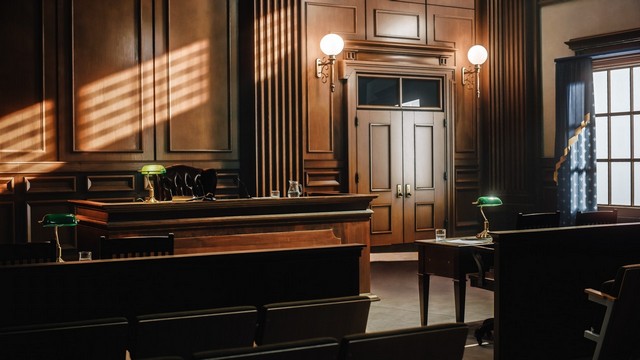Civil Litigation Lawyers

As a civil litigation attorney, your focus is on advocating for your clients and achieving favorable outcomes in court. To do this effectively, you need to ensure that all legal documents are properly served to the other party. That's where Pro Legal Serve comes in. Here are just a few reasons why civil litigation attorneys should use us as their private process server:
Experience and Expertise: At Pro Legal Serve, we have extensive experience serving a wide range of legal documents in civil litigation cases. Our team of licensed and bonded process servers have the expertise to ensure that your legal documents are served quickly and efficiently, while adhering to all legal requirements.
Timeliness and Reliability: We understand that time is of the essence in civil litigation cases. That's why we offer a range of service levels to meet your needs, from routine service to emergency service. We also provide updates on the status of service attempts, so you can stay informed throughout the process.
Advanced Technology: Pro Legal Serve utilizes advanced technology to make the process of serving legal documents as seamless and efficient as possible. We accept documents through a variety of channels, including email, fax, mail, and courier service. We can also integrate with most internal systems through API, FTP, Google Drive, Dropbox, and more.
Customized Solutions: We understand that every civil litigation case is unique. That's why we work with you to develop a customized plan to meet your specific needs. We can provide additional services, such as skip tracing and stakeouts, to ensure that the other party is properly served.
Legal Compliance: At Pro Legal Serve, we take legal compliance very seriously. Our team is well-versed in the laws and regulations governing service of process, and we ensure that all legal requirements are met when serving your legal documents.
By choosing Pro Legal Serve as your private process server, you can focus on your clients and your case, while we handle the important task of serving legal documents. Contact us today to learn more about how we can assist you in your civil litigation cases.
A legal document that orders a person to appear in court, produce documents including bank records or other physical evidence, or provide testimony in a legal proceeding such as a deposition.
A notice of deposition is a legal document that informs a witness that they are required to appear at a deposition, which is a pre-trial discovery process in which an attorney asks a witness questions under oath.
A legal document that is issued by a court or other authorized legal entity to notify a person that a legal action has been filed against them.
A legal document that is filed by a person or organization (the plaintiff) to initiate a civil lawsuit against another person or organization (the defendant).
A motion is a request made to the court by one party in a case. For example, a motion for summary judgment asks the court to rule on a case without a trial.
Including motions, orders, notices, and more.
We are trained professionals who have experience serving legal documents. We understand the intricacies of the legal system and can ensure that all documents are served in accordance with the law.
Personal injury cases often have strict deadlines and timeframes for legal actions. Pro Legal Serve can ensure that all documents are served promptly and efficiently, helping to keep the case on track and avoid delays.
When it comes to serving legal documents, reliability is key. Pro Legal Serve is dedicated to ensuring that all parties are properly notified of legal proceedings, and can be trusted to deliver documents in a timely and reliable manner.
In some cases, serving legal documents can be a dangerous or volatile situation. Our servers are trained to handle these situations safely and professionally, minimizing the risk of harm to all parties involved.
When serving legal documents, it is important to have a record of the delivery. Pro Legal Serve provides proof of service, which can be used in court to prove that all parties were properly notified of legal proceedings.










